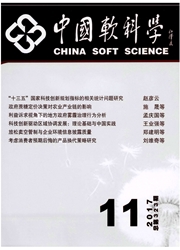

 中文摘要:
中文摘要:
理论上,购买技术因多种原因可能抑制东道国自主创新能力;引进外资诱发本地雇员通过干中学掌握技术,有助于东道国获得连续的技术知识和形成完备的知识体系,进而可能提升自主创新能力。利用我国2003-2012年28个制造行业面板数据,运用GMM估计法检验了购买技术和三类外资技术溢出效应对自主创新的影响。结果发现,利用外资引进技术是提升制造业自主创新能力的较优方式,购买技术则抑制了自主创新能力。其中,模仿效应提升自主创新能力的作用最大,竞争效应提升自主创新能力的作用较小,模仿效应和竞争效应提升高层次技术自主创新能力的作用低于提升低层次技术自主创新能力的作用,二者没有显著影响创新投入水平;研发溢出没有显著影响制造业自主创新能力和创新投入水平。
 英文摘要:
英文摘要:
Theoretically, buying technology could hinder the ability of independent innovation of host country for various reasons. Introduction of foreign direct investment can induce local employees to master technical knowledge through learning by doing, which would favor easy to obtain continuous technical knowledge and form a complete system of knowledge for host country, and which may enhance the capability of independent innovation of manufacture. Impact of purchase technology and three sorts of FDI effect are tested on independent innovation by GMM method with 28 industries unbalanced panel data from 2003 to 2011. Results show that introduction of technology would be better mode of improving independent innovation ability of manufacture by FDI, and purchase of technology hinders the independent innovation ability. The role of imitation effect is the most on upgrading the capability of independent innovation, the role of competition effect is smaller on upgrading independent innovation ability, roles that imitation effect and competition effect improve high level technical independent innovation ability are lower than roles of enhance low level technology independent innovation ability, and impacts of imitation effect and competition effect are not significant on the level of innovation input. Roles of R&D spillover effect are not significant on the independent innovation ability and the levels of innovation input.
 同期刊论文项目
同期刊论文项目
 同项目期刊论文
同项目期刊论文
 期刊信息
期刊信息
